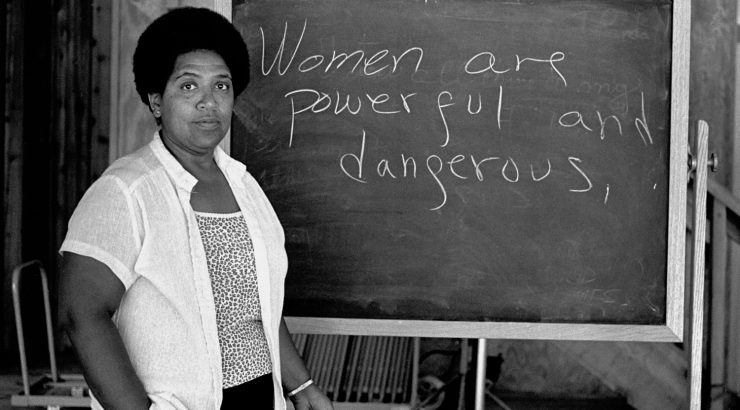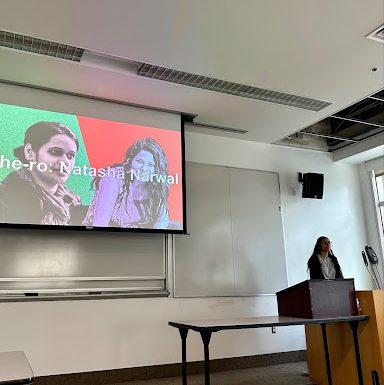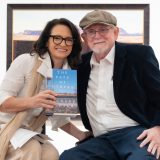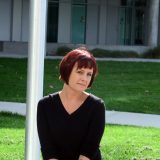
HerStories: A Celebration of Women in History
March 21, 2023
Every March, in Honor of Women’s History Month, students in Wilkinson College’s Women and Gender Studies minor gather to tell stories of women past and present that have made their mark in the activist, academic, and political spheres. Through the use of multimedia presentations, the seniors highlight the histories, or “Herstories”, a term used to describe the narration of history from a female viewpoint, of women that inspire them. This year, 13 students educated an audience of students and faculty about activists Audre Lorde, Greta Thunberg, Natasha Narwal, Bell Hooks, Gloria Steinem, and Louisa Capetillo.
Professor CK Magliola, the director of the Women’s and Gender Studies minor noted:
“An inclusive curriculum benefits all students. HERSTORIES is interventionist at this point. It’s remedial education because unfortunately, students aren’t taught about very important people, such as the many women of all races who have contributed so much. This omission has very pernicious effects; it’s not just an oversight.”
The students agreed. Kate Riccardelli (‘23, Political Science), said “For me as a women and gender studies minor, it is really important to highlight females who have impacted world history, as well as feminism in the U.S. and across the world. To have an opportunity to share this with other Chapman students during the month of Women’s History Month, makes it even more special and important.”
Riccardelli spotlighted feminist Audre Lorde (pictured above). Lorde was a writer, civil rights activist, and professor. After years of struggling to get her work published as a Black lesbian, she decided to take matters into her own hands by co-founding a press for women of color called “Kitchen Table: Women of Color Press.”
According to Riccardelli, Lorde made many contributions to the feminist movement, including writing nine volumes of poetry and five works of prose and contributing to many global movements that have helped raise women’s voices in areas where they might not have otherwise been heard. One thing Lord continually emphasized in her writings and teaching was the importance of acknowledging the intersectionalities of our identities and those around us. Lord believed not recognizing intersectionalities would hinder women in community spaces.
Katlyn Barbaccio (‘23, Political Science and Sociology) spoke about The Crunk Feminist Collective: a blog run by scholar-activist women of color from the 90s, or as they call it, the “hip hop generation.” The intent for their blog and extended offline community is to establish a safe space for coalition building, which they create through encouraged conversation about feminist principles and politics.
“I think [something] that’s important to address is, what does identifying as a feminist mean for women of color? And is feminism enough? Does it go far enough for women of color?” Barbaccio said. “We see these labels now that emerge like womanism, hood feminism, Black feminism, crunk feminism, and all these are completely valid labels to adopt. But the creation of these labels suggests that the past feminist movement might not have done enough to recognize the needs or the works of women of color who are feminists.”
Another presenter talked about a younger activist, Greta Thunberg, who is well known for her work in climate change advocacy. At the age of 20, Greta is the 2019 Right Livelihood Award recipient, author of Our House is On Fire, and founder of the “Fridays for the Future” movement.
In each presentation, students discussed their women’s major contributions, historical and contemporary significance, why they are important, and why they should be remembered. After each presentation, students were encouraged to comment or ask questions.
“One of the main points of HERSTORIES is that when we learn about Sheroes, it inspires us to continue the work they’ve done, so we don’t have to start over from scratch every generation.” said Professor Magnolia. The Women and Gender Study students, with Magliola’s guidance, seem to be doing just that.
“I am so grateful that I got to participate in Herstories. As a Women’s and Gender Studies minor, I think it is so important that we remember and recognize our Feminist Foremothers that have paved the way for today’s current movement. We want our community to know that women’s history matters. Telling ourstory—their stories—matters.” said Barbaccio.
Check out the link to learn more about the Women and Gender Studies minor.


